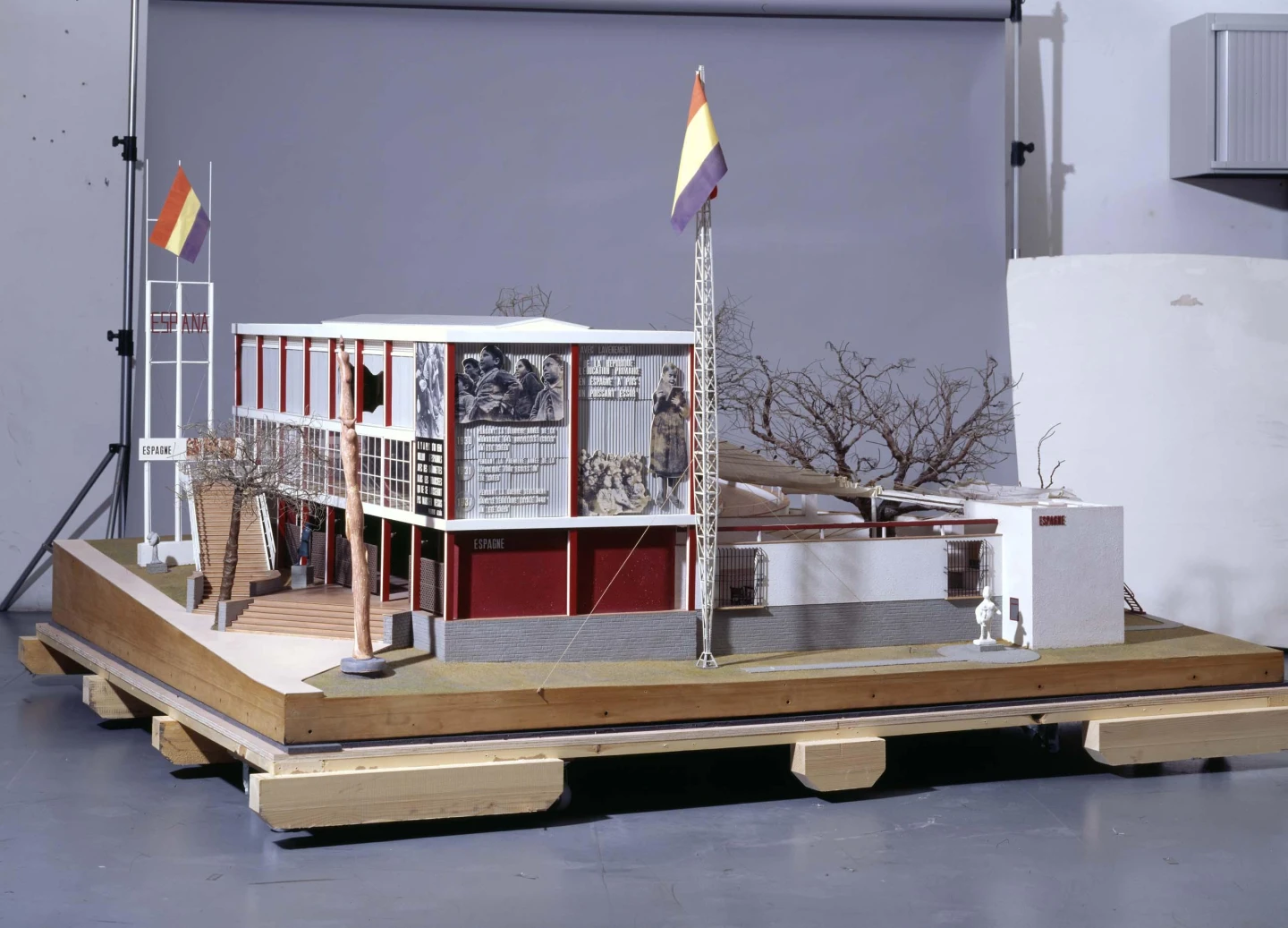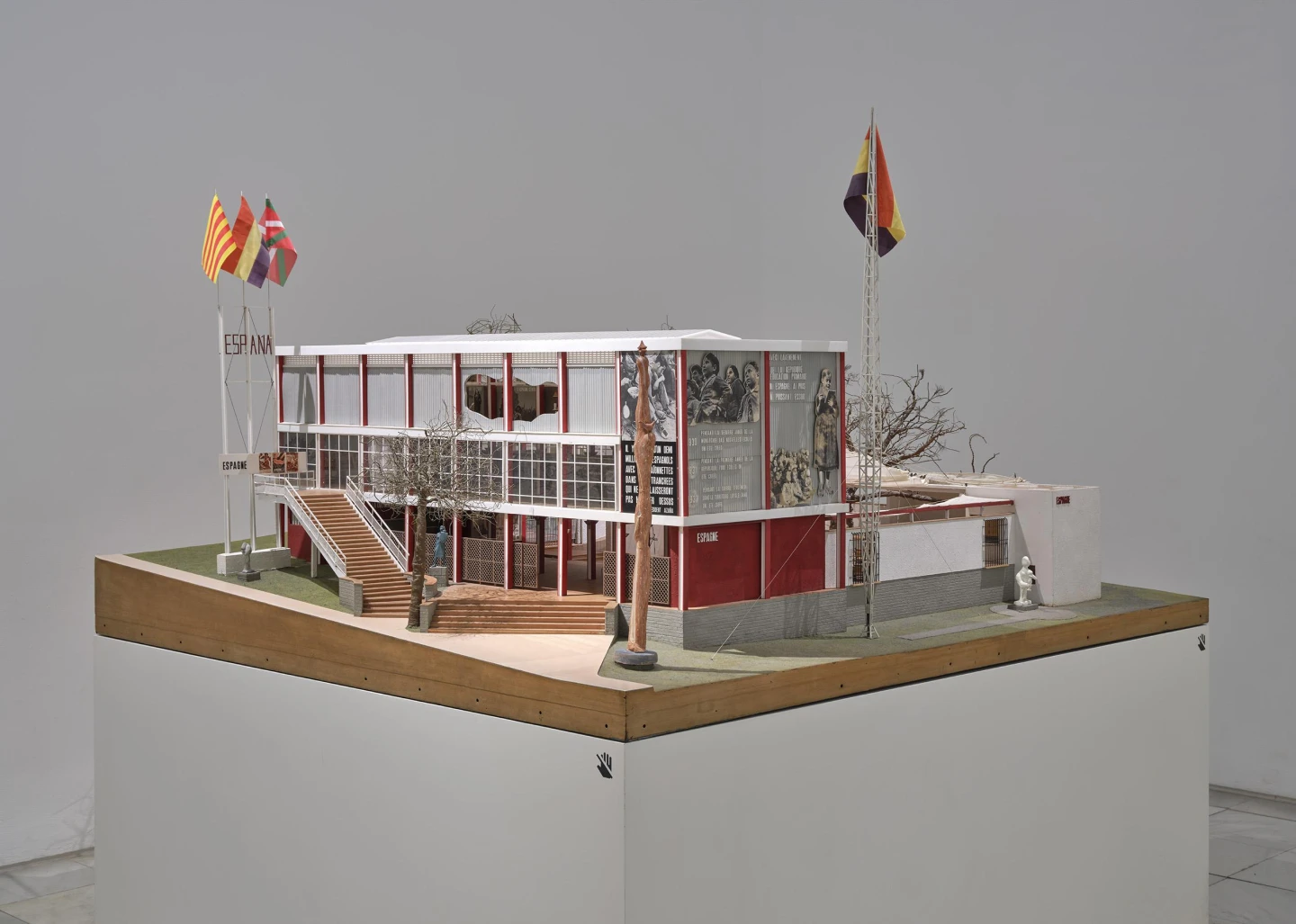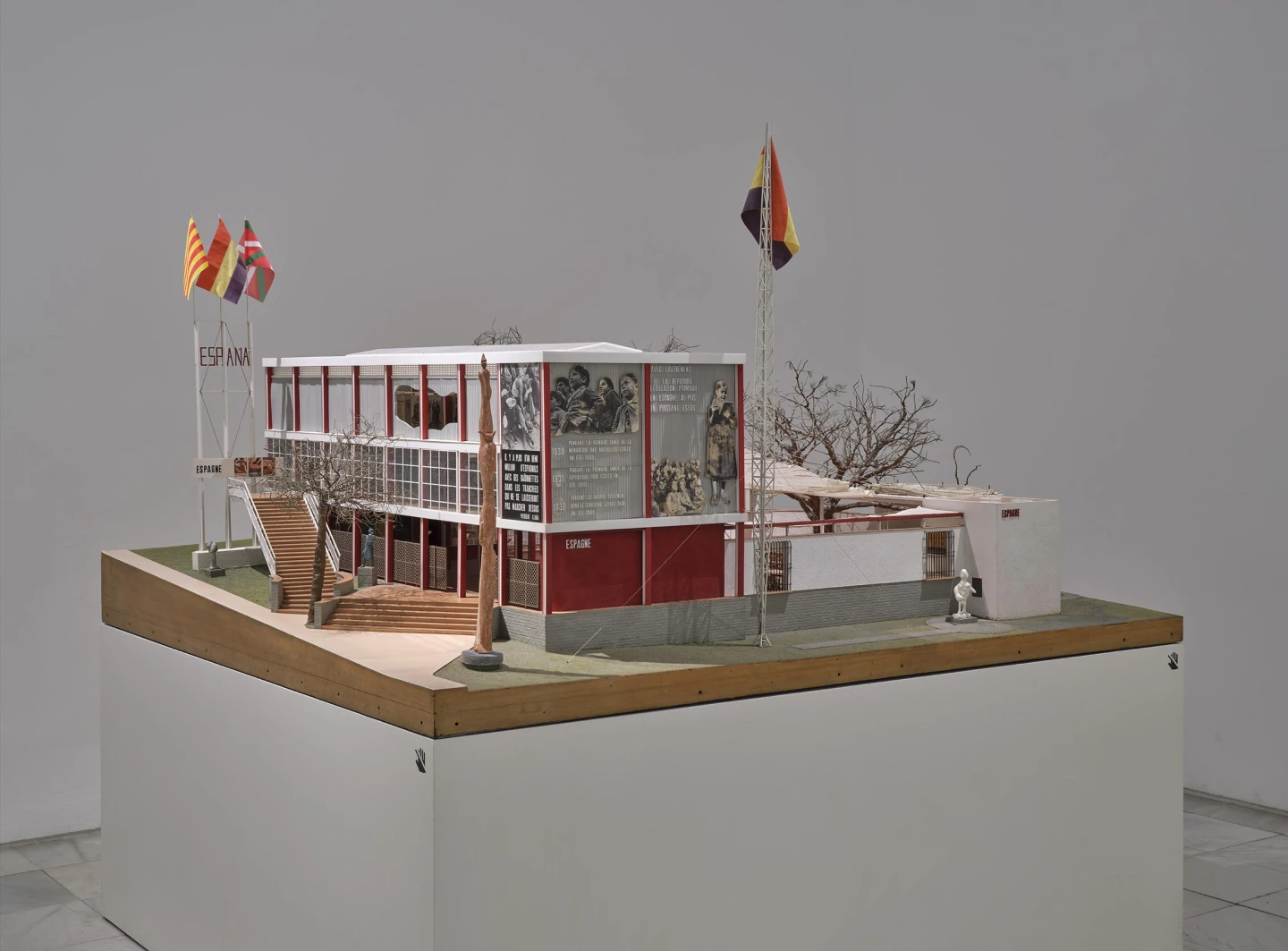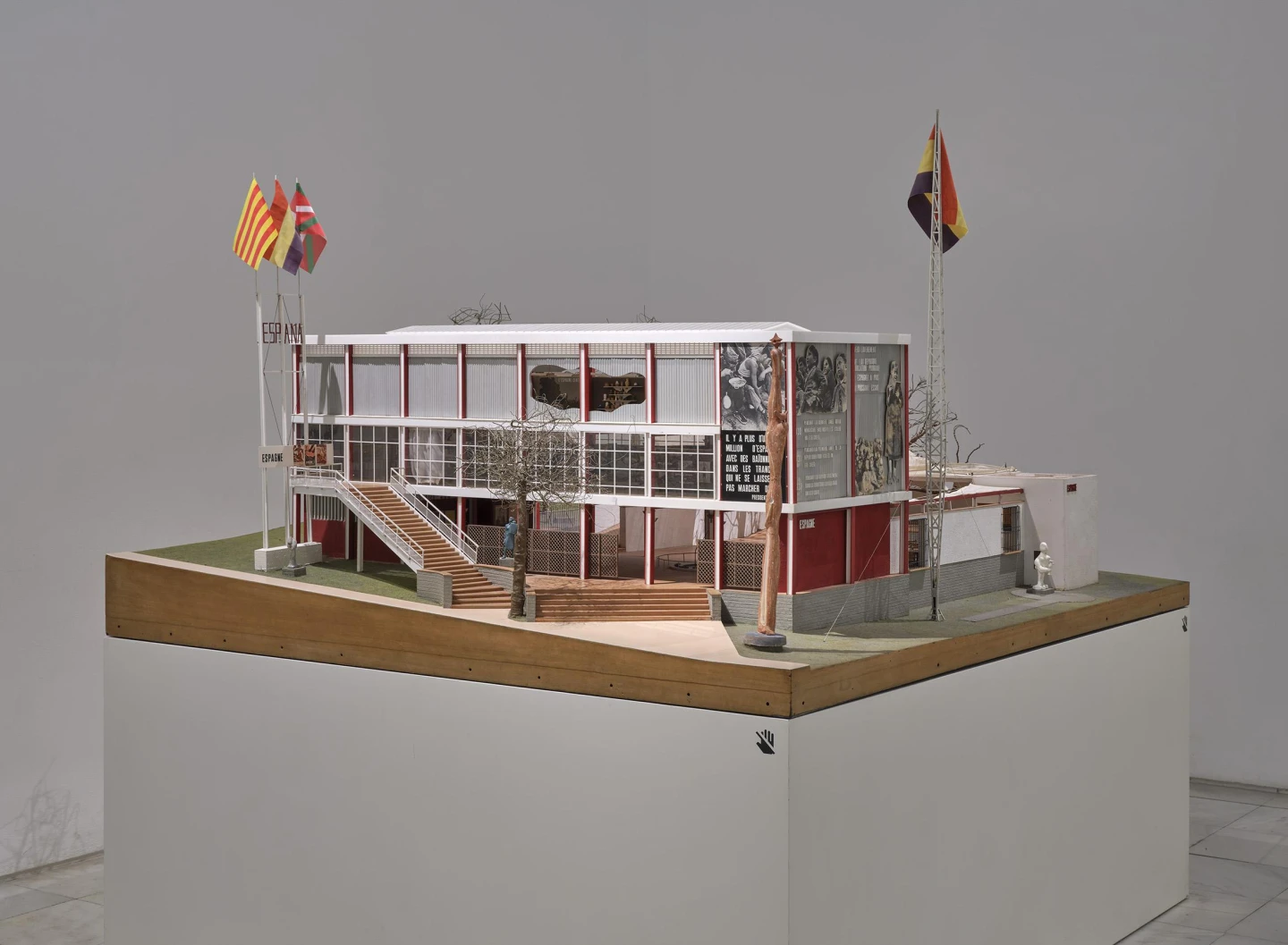
Maqueta del Pabellón de España en la Exposición Internacional de París de 1937 (Spanish Pavilion Model for the International Exhibition of Paris, 1937)
- Technique
- Assemblage
- Dimensions
- 140 x 230,5 x 201 cm
- Year of entry
- 1988
- Registration number
- AS11702
- Date
1987
- Description
Model created by Juan Mirón, under Josefina Alix's direction, for the exhibition «Pabellón Español. Exposición Internacional de París» ("Spanish Pavilion. International Paris Exposition"). Juan Mirón/Stuma Study
- Materia
Wood, plastic, paper, paperboard, fabric, yarn, plaster, methacrylate, copper wire, metal and paint
One of the most relevant projects in promoting the Republican cause overseas was the construction of the Spanish Pavilion at the Exposition Internationale des Arts et Techniques dans la Vie Moderne, held in Paris in 1937.
Architects Luis Lacasa and Josep Lluís Sert were commissioned for the building’s design and construction. Despite Lacasa’s countering of the principles of Le Corbuserian architecture, Sert’s previous professional relationship with Le Corbusier, coupled with the necessary functional and ephemeral nature of the Pavilion, were key in both architects designing a building project anchored in simple, popular architecture, while also exhibiting the influence of the Swiss master and contrasting with the monumentality of the other European pavilions.
By way of this modern architecture, the Pavilion was conceived to demonstrate, simultaneously, the horrors of war, the optimism of the Spanish government and ongoing productivity and creativity through film screenings, concerts, dance recitals and theatre performances. Moreover, the participation of artists such as Joan Miró, Alexander Calder, Julio González and Pablo Picasso would ensure it captured public attention, in line with the Spanish government’s aim to mobilise international support in its fight against fascism.
Francisco Rojas Serrano
Image gallery





